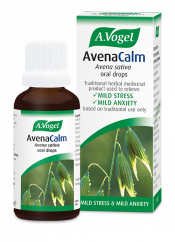Health anxiety – coping with this issue
We all get anxious from time to time, but constant anxiety can be overwhelming and may affect your ability to carry on with day-to-day life.
There are many types of anxiety, ranging from mild to very severe. Health anxiety, in particular, is a growing problem. In this blog, I cover some common questions about this problem, such as:
- What is health anxiety?
- What are the symptoms of health anxiety?
- Can health anxiety cause physical symptoms?
- What causes health anxiety?
- Is health anxiety common?
- How do you manage health anxiety?
- How long does health anxiety last?
Read on to find some answers to these questions.
What is health anxiety?
Health anxiety can be a persistent feeling that you are ill, or are about to become ill.
If someone has health anxiety, harmless physical symptoms may be seen as an indication of serious illness. For example, a rapid heart rate may be taken to indicate a heart attack when it is more likely to be triggered by stress or anxiety itself.
What are the symptoms of health anxiety?
Health anxiety can show itself through various different behaviours. Signs that you have the problem include:
- Constant worry about the state of your health
- Persistently checking the internet for information about health conditions2
- Seeking regular reassurance from others about the state of your health
- Obsessively checking your body for signs of poor health
- Behaving as you would when ill e.g. avoiding any strenuous activities
- Making regular appointments with your doctor
- Persistently questioning whether or not your doctor or tests have missed an illness
- Fears about your health that don't subside after getting the reassurance of your doctor
- Having regular fears that you are ill.
Can health anxiety cause physical symptoms?
As well as causing the problems outlined above, health anxiety can lead to physical issues such as:
- Headaches
- Tiredness
- Sleeplessness
- Panic attacks
- A fast heart rate.
My self-care tip: Limit internet use to manage anxiety
There are lots of interesting ways to manage anxiety but here I look at how the internet can fuel the problem and how limiting your use may be of benefit.
What causes health anxiety?
Some contributing factors in the development of health anxiety are:
- Getting older
- Stress
- Changes in your life
- Lack of understanding about health
- Previous experiences of serious ill-health
- Having a family member who has suffered from health anxiety.
Is health anxiety common?
As I indicated at the start of this blog, anxiety is an extremely common occurrence and this has certainly increased through the course of 2020, which has been a stressful year for all of us.
Findings by the Office for National Statistics show that 39% of people who were married or in a civil partnership reported high levels of anxiety from April to May of 2020.3 This is an increase on levels before this period when only 19% were likely to experience the problem.
This is perhaps due to the fact that this group are more likely to have to balance multiple responsibilities, such as looking after children, working from home and caring for elderly relatives.
Recently, we have also seen very high levels of anxiety in those aged 75 and older, as concerns for our health become a more immediate problem.
So, if you are feeling anxious, it is most definitely not a problem you are alone in dealing with.
Ways to manage health anxiety
There are various treatments available to help manage anxiety but what works for one person may not necessarily be the answer for someone else. This means it can be a case of trying out a few options, sometimes simultaneously, to find one that works for you.
Remember, please consult your doctor if your concerns about your health feel overwhelming or persist despite these self-help strategies.
Self-help groups – this provides the opportunity to talk through your symptoms and concerns with people suffering from similar problems. Your GP will be able to advise on what's available near you.
Charities – the likes of Anxiety UK and Mind have helplines available and may be able to direct you towards specific services, such as support groups, that are available in your area.
Apps – there are many apps available to help you deal with stress and anxiety, but the NHS recommends one called the 'Stress & Anxiety Companion'. This contains breathing techniques, games and relaxing music to help you unwind.
Therapy – it is always advisable to speak to your GP if anxiety is interfering with your day-to-day life. In some instances, it may be an option to try cognitive behavioural therapy which is a talking therapy provided by the NHS.
St John's Wort – natural remedies can be a really good tool for treating the symptoms of mild stress and anxiety and one particularly helpful option is St John's Wort. This can be found in our remedy Hyperiforce. Please note that Hyperiforce is contraindicated with most other medication, including hormonal contraceptives.
Try relaxation techniques – deep breathing techniques help to lower the heart rate and provide something relaxing to focus on. Follow our blog on breathing techniques to reduce stress for more advice!
Exercise – this is a good way to keep busy, plus it releases feel-good hormones known as endorphins which can lift the mood. Some good options include yoga and Pilates.
Routine – keeping up a regular, fulfilling routine is a good way to reduce anxiety. When you're not busy, try engaging in some creative past times or try out a new hobby altogether.
Keep busy – activities like reading and singing can provide a positive distraction.
Talk – let family and friends know how your feeling and get their support.
My Top Tip:

Try St John's Wort Hyperiforce for the symptoms of slightly low mood and mild anxiety.
"Helps me when I am low, makes my life smoother and more balanced."

How long does health anxiety last?
Unlike some other health conditions, it isn't easy to say how long health anxiety will last. For some, it may be a temporary issue triggered by something challenging in their lives. Others may experience it long-term, with periods of more severe anxiety alongside more manageable times.
The best thing you can do is seek the help of a health care professional. This way you can talk over the issues that are concerning you and get the most suitable form of support.
In the meantime, I hope the suggestions that are listed in this blog are of benefit.
References
2 https://www.tandfonline.com/doi/abs/10.1080/10615806.2014.888061








